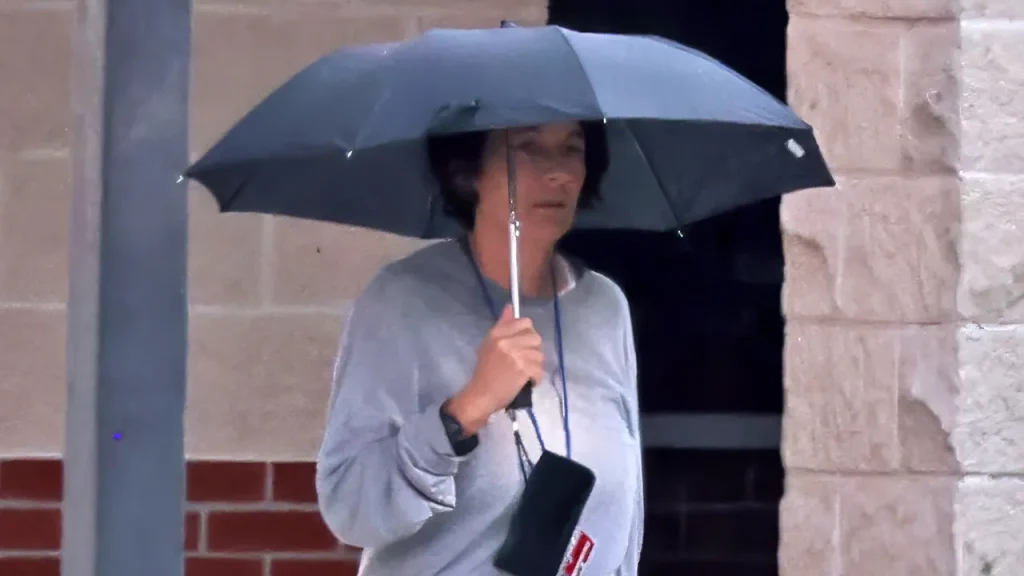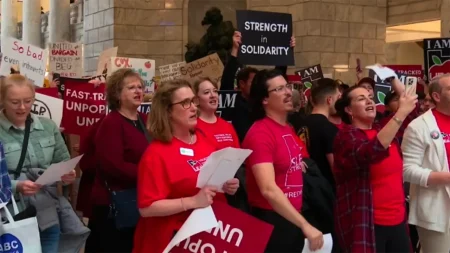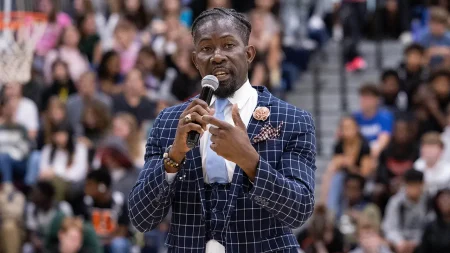Maxwell’s Special Treatment in Minimum-Security Prison Raises Eyebrows
Recent reports from The Wall Street Journal reveal that Ghislaine Maxwell, Jeffrey Epstein’s former lover and convicted sex-trafficking accomplice, is receiving what inmates describe as “unusually favorable treatment” at the Federal Prison Camp Bryan in Texas. The minimum-security facility, often referred to as “Club Fed,” houses 622 inmates, including notable figures like Elizabeth Holmes and former reality star Jennifer Shah. Maxwell’s arrival over the summer, following her agreement to meet with federal prosecutors and before the Supreme Court’s denial of her latest appeal, has reportedly disrupted the prison’s normal operations and created resentment among fellow inmates. Perhaps most troublingly, prisoners were allegedly warned against discussing Maxwell’s case with the press, with at least one inmate who spoke to journalists being transferred to a higher-security facility afterward.
Federal prison consultant Sam Mangel, who works with clients at Bryan, described a stark contrast between Maxwell’s treatment and that of other inmates. According to Mangel, Maxwell is being treated “more like she’s the guest in a hotel as opposed to an inmate.” One particularly unusual incident involved prison officials locking down the entire facility so Maxwell could receive visitors in the chapel through a side entrance, concealing their identities from other inmates. While this arrangement might prevent confrontations with inmates who have daughters similar in age to Maxwell’s victims, it underscores the special considerations being made for her. Mangel emphasized that housing someone convicted of sex crimes at Bryan is unprecedented, calling it “the most desirable prison for women convicted of white collar felonies in the country.”
The circumstances surrounding Maxwell’s transfer from the Federal Correctional Institution in Tallahassee to Bryan have also raised questions. Mangel believes “strings were absolutely pulled at the highest possible levels of the DOJ” to facilitate this move. While he acknowledges there were legitimate security concerns after Maxwell began cooperating with authorities, the level of preferential treatment appears extraordinary. Her cooperation included an interview with Deputy Attorney General Todd Blanche in August, during which Maxwell maintained her innocence while acknowledging some of Epstein’s wrongdoing. The Tallahassee facility, a low-security prison, would have been more typical for housing someone with Maxwell’s conviction, making her placement at minimum-security Bryan all the more unusual.
Maxwell’s statements during her cooperation with authorities have garnered significant attention. She told Blanche she never witnessed former President Donald Trump doing anything “inappropriate with anybody” and denied claims that former President Bill Clinton had visited Epstein’s infamous island in the U.S. Virgin Islands. Maxwell described the Clintons as her friends rather than Epstein’s. Regarding her former associate, Maxwell stated, “I do believe that Epstein did a lot of, not all, but some of what he’s accused of, and I’m not here to defend him in any respect whatsoever.” Despite this seeming acknowledgment of Epstein’s wrongdoing, Maxwell continued to maintain her own innocence, denying having witnessed any nonconsensual sexual activity or sex with minors.
The Bureau of Prisons has remained silent on the matter, with its public affairs office not commenting due to the ongoing government shutdown at the time of reporting. This lack of transparency has only fueled speculation about why Maxwell is receiving what appears to be preferential treatment. According to prison consultants, cooperation with authorities is one of two major ways inmates can improve their conditions, the other being acceptance of responsibility. While Maxwell has cooperated by meeting with prosecutors, her continued claims of innocence despite her conviction stand in stark contrast to the acceptance of responsibility that might typically be expected from someone seeking better treatment within the prison system.
Following the Supreme Court’s rejection of Maxwell’s appeal last week, she is now scheduled for release in 2037 after serving her 20-year sentence for procuring girls for Jeffrey Epstein, who died in a federal jail in New York before facing trial in 2019. The case continues to draw attention not only because of the high-profile individuals connected to Epstein but also due to questions about fairness in the criminal justice system. The apparent special treatment afforded to Maxwell raises important concerns about equality under the law and whether certain inmates receive preferential treatment based on their connections, cooperation, or notoriety rather than standard prison protocols that should apply equally to all incarcerated individuals regardless of their background or connections.







